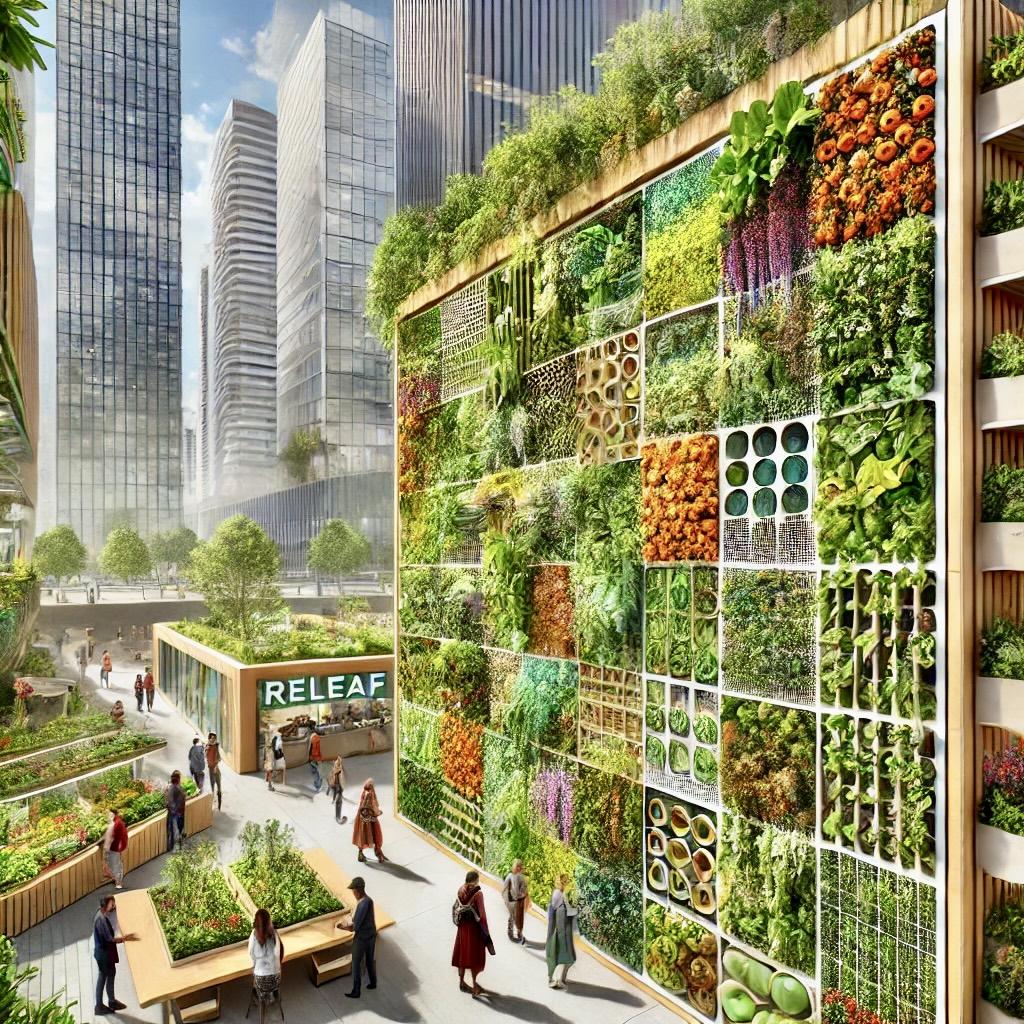
LiveWall functions as a practical and aesthetically pleasing vertical gardening solution, serving as an effective outlet for Hortech's innovative designs and commitment to sustainability. However, its current design focuses more on the functional aspect rather than the adaptability and aesthetic versatility.
While the existing modular system can support a variety of plant species, providing a more adaptable system could indeed result in more compelling displays. By offering an opportunity to experiment with different textures, color palettes, and plant combinations, the vertical gardens could become more visually captivating and diversified, creating unique natural murals.
On the other hand, ReLeaf takes the concept of vertical gardening to a new level, evolving it into an even more sustainable and inclusive solution. Unlike other systems, ReLeaf is not just a product, but an entire ecosystem in itself. It employs a "closed-loop" system, which not only optimizes resource usage but also promotes a circular economy.
In contrast to the somewhat static nature of the LiveWall system, ReLeaf continuously adapts and evolves, incorporating feedback from the environment and the community to improve its functionality and aesthetics. By involving local communities, the cooperative model of ReLeaf also ensures that the benefits of these gardens are shared more equitably, fostering a sense of ownership and shared responsibility.
Moreover, ReLeaf pushes the concept of sustainability even further by reusing and upcycling waste materials to create the infrastructure for its gardens. This not only reduces waste but also further embeds each garden within the local context, adding to its aesthetic and environmental relevance.
In this way, ReLeaf not only provides a platform for attractive vertical gardens, but it also contributes to the creation of sustainable communities, enhanced biodiversity, and ultimately, a more balanced urban ecosystem.